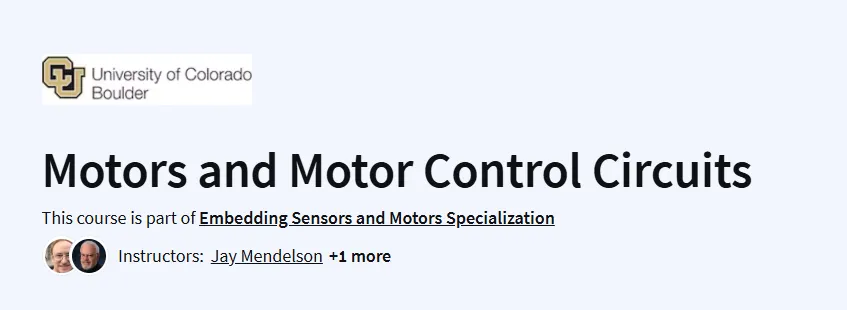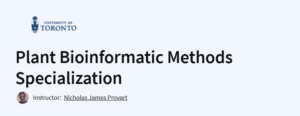What you will learn in Motors and Motor Control Circuits Course
- Learn the principles of operation for DC, AC, and stepper motors, including torque, speed, and efficiency.
- Gain hands-on experience designing and troubleshooting motor control circuits using relays, contactors, and variable frequency drives (VFDs).
- Understand motor protection techniques, including overload prevention and thermal management.
- Explore real-world applications of motor control in industries like manufacturing, robotics, and HVAC systems.
- Develop skills in reading and interpreting motor control schematics and wiring diagrams.
- The course includes simulations and practical exercises to reinforce theoretical concepts.
Program Overview
Introduction to Electric Motors
⏱️ 3-4 weeks
- Study the working principles of DC, AC induction, and synchronous motors.
- Analyze motor performance characteristics such as torque-speed curves and power factors.
- Compare different motor types and their industrial applications.
Motor Control Fundamentals
⏱️ 2 weeks
- Focuses on button inputs, LED control, and relay interfacing.
- Features interrupt-driven programming.
Sensor Integration
⏱️ 4-5 weeks
- Learn about relays, contactors, and motor starters.
- Understand ladder logic and control circuit design.
- Explore manual and automatic motor control techniques.
Variable Frequency Drives (VFDs) and Advanced Control
⏱️ 5-6 weeks
- Study PWM (Pulse Width Modulation) and VFD operation.
- Learn how to program and troubleshoot VFDs for speed control.
- Examine energy-saving techniques in motor control systems.
Protection and Troubleshooting
⏱️4-5 weeks
- Identify common motor faults and failure modes.
- Learn about fuses, circuit breakers, and thermal overload protection.
- Practice diagnostic techniques using multimeters and oscilloscopes.
Capstone Project
⏱️ 6-8 weeks
- Design a motor control circuit for a real-world application.
- Simulate and test the circuit using industry-standard software.
- Present findings in a technical report.
Get certificate
Job Outlook
- Motor control skills are in demand in automation, manufacturing, and energy sectors.
- Technicians and engineers with motor expertise earn 60K100K+ depending on experience.
- Industries like robotics, electric vehicles, and industrial automation rely heavily on motor control specialists.
- This course enhances employability for roles such as Control Systems Technician, Electrical Engineer, or Automation Specialist.
Specification: Motors and Motor Control Circuits
|
FAQs
- You’ll need a PSoC 5LP Prototyping Kit to interface with the motors and sensors used in lab exercises.
- Required components include standard electronic parts like transistors, resistors, diodes, and AA batteries—all readily available from suppliers like DigiKey.
- A breadboard and various gauge wires are essential for setting up motor circuits.
- An oscilloscope (USB-based like PicoScope 2204A-D2 or OpenScope MZ, or budget models) is required for capturing and analyzing motor voltage/current.
- Hands-on kit delivery time should be considered—ensure you order hardware early to keep pace with course deadlines.
- Teaches how to interpret torque–speed curves to select the right motor for specific load and performance requirements.
- Covers design criteria for both AC (single- and three-phase) and DC (brushed, brushless, servo, stepper) motors in different contexts.
- Explains how inductance, resistance, capacitance, and enclosure type affect motor performance and efficiency.
- Includes lab exercises that simulate real-world scenarios like motor speed measurement, enabling tailored motor control for specific applications.
- Presents AC variable-speed drive techniques—useful for optimizing energy use in industrial systems.
- Labs require building circuits and programming firmware—particularly controlling motors via microcontrollers and rotary sensors.
- Students report that labs are challenging but highly rewarding, offering a strong blend of theory and hands-on practice.
- Some users have noted that lab instructions can be vague, requiring extra troubleshooting or external research.
- Instructor and TA support, plus peer forums, help fill gaps when instructions are unclear.
- Hands-on work with sensor data, microcontroller integration, and feedback loops enhances real-world skills essential for electrical engineering.
- Motor Control Engineers#: essential for designing embedded motor systems in automation and robotics.
- Automotive Engineers#: helpful as electric motors become central to modern vehicle propulsion systems.
- Robotics Engineers#: strong foundation in motor control and feedback systems is critical for robotic actuation.
- Manufacturing & Electrical Engineers#: relevant in designing and maintaining motor-driven machinery.
- Also useful for roles like Maintenance Technicians, Test Engineers, and Electronics Technicians—anyone working with motor-driven systems.
- You can earn academic credit as ECEA 5341—part of CU Boulder’s Master of Science in Electrical Engineering degree.
- Completing the course grants a shareable Coursera certificate recognized in industry and academia.
- Covers intermediate-level content, and assumes completion of the prior course in the specialization (Sensors and Sensor Circuits) for maximum benefit.
- Fits well into CU Boulder’s broader Embedded Sensors and Motors specialization, enhancing depth and coherence.





